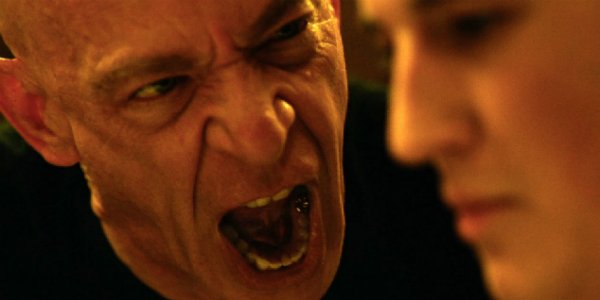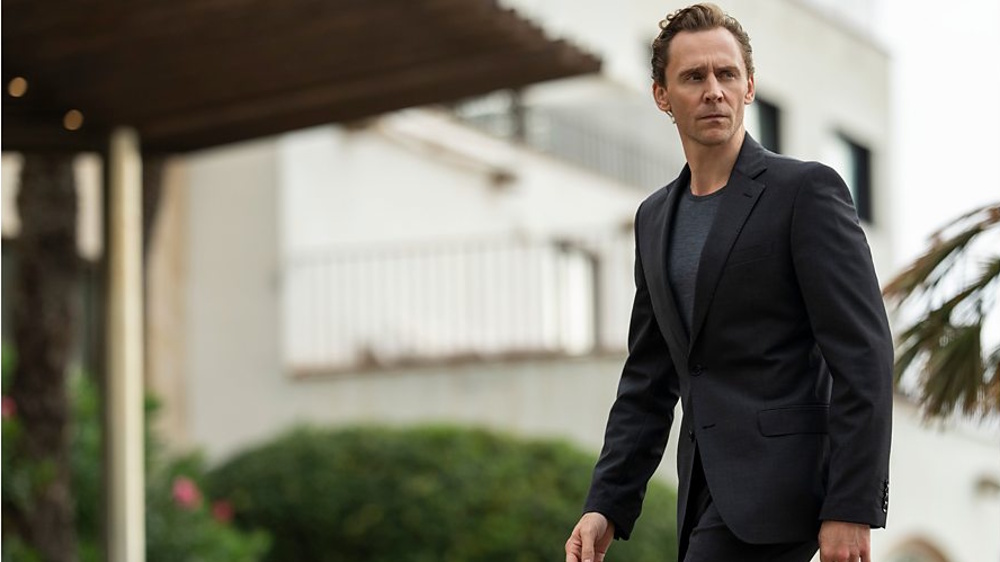Why Whiplash Deserves To Win Best Picture

"There are no two words more harmful in the English language than ‘good job.’" These words, spoken by J.K. Simmons in his Oscar-nominated Whiplash role, still haunt me to this day. I heard it many times throughout my 15-year period of studying trumpet, but I was nonetheless convinced that I would be the next great musician. I landed top spots in state and regional ensembles, solo competitions and prestigious orchestras all throughout high school. I even took the fact that I grew up in the smallest state as a clandestine sign that I was meant for great things. Moving to New York to study at a music conservatory was the next logical step, and I was all too eager to flip off my high school acquaintances as I headed towards the great, new life I envisioned for myself.
This dream of mine quickly ended after six months when conservatory life revealed the harsh truths of this profession. I was able to forget about the life I abandoned, now nearly a decade later. But sitting in the theater watching Whiplash was both a stressful and yet poetic reminder of the naivety of young musicians and the lengths they’ll go to achieve greatness. Though Whiplash will likely be overlooked in the Best Picture race, as titles like The Imitation Game and Boyhood vie for the ultimate honor, in my mind it deserves to take home the whole shebang.
It is the most honest and realistic portrayal of conservatory life. I never had an instructor quite like Simmons, nor have I heard any of my peers encountering such an unapologetically cruel man. But he’s not necessarily meant to be. As we view the film from the perspective of Miles Teller’s Andrew, a hopeful and spirited young drummer, Terence Fletcher acts as a projection of all the anxieties and frustrations these freshmen place on themselves. Teller, who we’ve seen air towards the goofier male humor side of film, finally breaks down that emotional barrier of his and offers a vulnerability we hadn’t seen before.
We first meet Andrew practicing his drum rolls in a practice studio until his hands can’t roll anymore. He wants to catch the attention of Fletcher, the man who can change his life. When he does, Andrew is pushed into the deep end of the advanced jazz ensemble that Fletcher dictates with an iron baton. The man Andrew first sees as a possible mentor quickly begins his reign of physical and emotional torture. In the mind of a young musician, there’s no other choice than to work oneself until he or she reaches perfection. In shuffling all of our other responsibilities, including finding love, we choose instead to spend most of our waking lives in the practice room. Bolstered by the cinematography and the sounds of continuous drum rolls, I could practically taste the blood around my chaffed lips as I watched Andrew’s fingers crack and bleed.
It’s miraculous if you find some spare time in between ensemble rehearsals or solo practicing. (It’s important to make this distinction between "rehearsal" and "practice." Practicing is for your own time. Rehearsing is for the group. As Andrew learns, there are consequences when you save your practice time for the group.) When you do, though, you’re rushing from venue to venue, looking to score your next gig. And you never know when your big break will come. In this sense, Fletcher was so artfully conceived that, while he did have a physical presence in Whiplash, he could almost be seen as specter, personifying every pressure Andrew places on himself and the nearly impossible-to-achieve standards he hopes to reach.
The cruel but poignant joke of Whiplash is that perfection doesn’t exist. It may be demanded of all musicians at one point or another, and even beaten out of them, as Andrew literally bled for his art. But all musicians eventually realize the truth. For Andrew, he realizes this when the life he’s building for himself comes crashing down because of a car crash. Now matter how hard he pushed himself, he physically cannot break free, though he wants to believe he can. This was the most heartbreaking scene for me to watch as a former musician. There comes a point for many of us when we finally reach our breaking point, and if we’re lucky enough to recognize them, we can adjust ourselves before it breaks us completely. Unfortunately, Andrew wasn’t able to see the car coming before it hit.
I was never asked by my instructors to deliver perfection, but I placed that burden on myself. One of my college instructors would constantly turn to me and ask, "Are you having fun?" If I said no, we approached the music differently until the answer became yes. This is why the final scene of Whiplash still resonates with me.
Your Daily Blend of Entertainment News
Andrew has lost everything. His girlfriend is gone. He’s kicked out of school. He lost his self-respect. He’s not even running in the same circle of musicians he once was. As destiny would have it, Fletcher appears before him on stage after Andrew is lured into a jazz club by the music. This leads him to performing in an important concert at Carnegie Hall, but, of course, he realizes at the last minute that this is one final "fuck you" from his ultimate nemesis. Unfortunately, he soon realizes the whole thing is a trap. But as the embarrassing setback he experiences threatens to break him further, he finally finds what makes playing music so fun — proving to Fletcher and himself that he is the next great musician.
Boyhood has heart. The Theory of Everything has spirit. But I can't remember the last time I was so emotionally or viscerally affected by a film since the sting of Whiplash.
